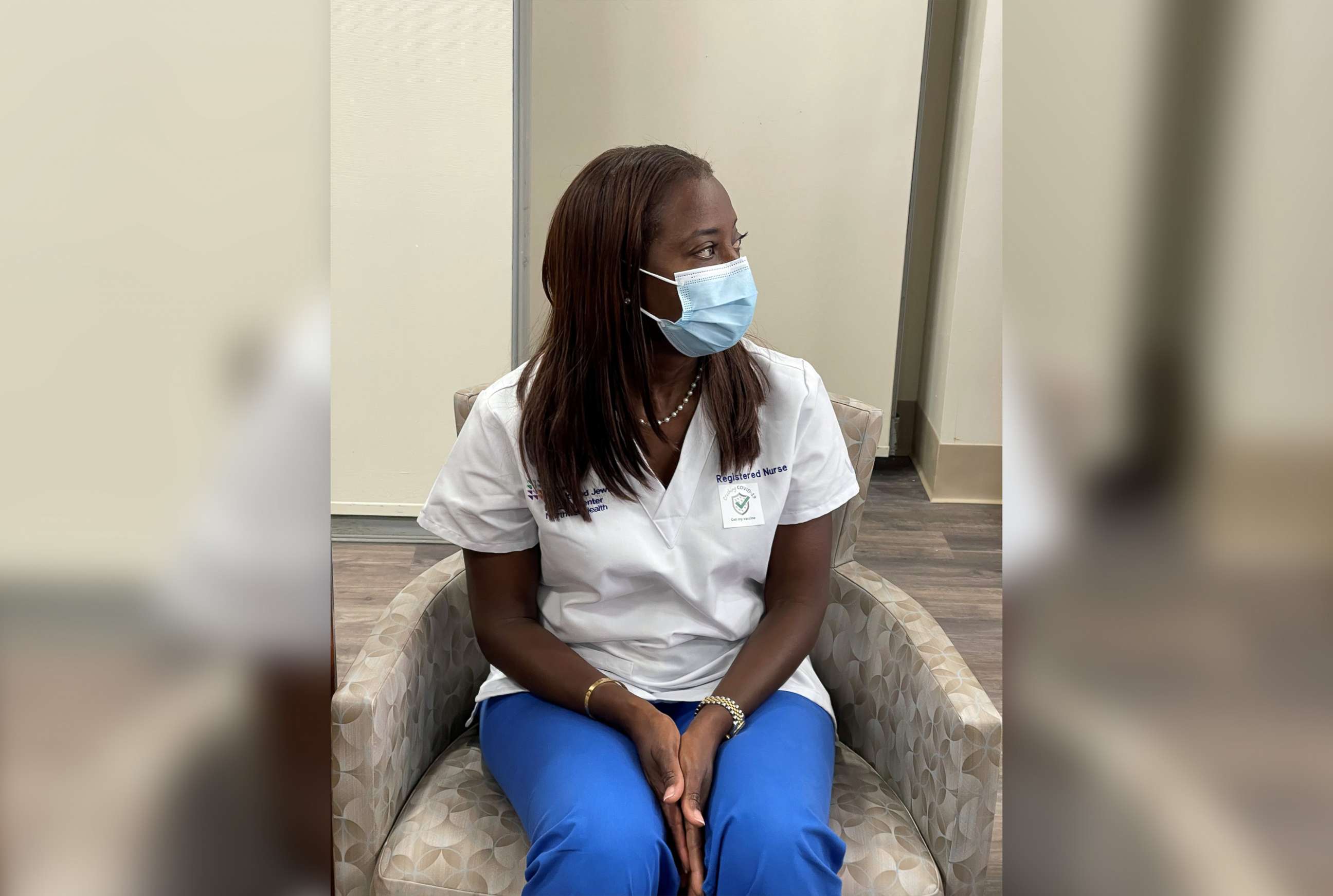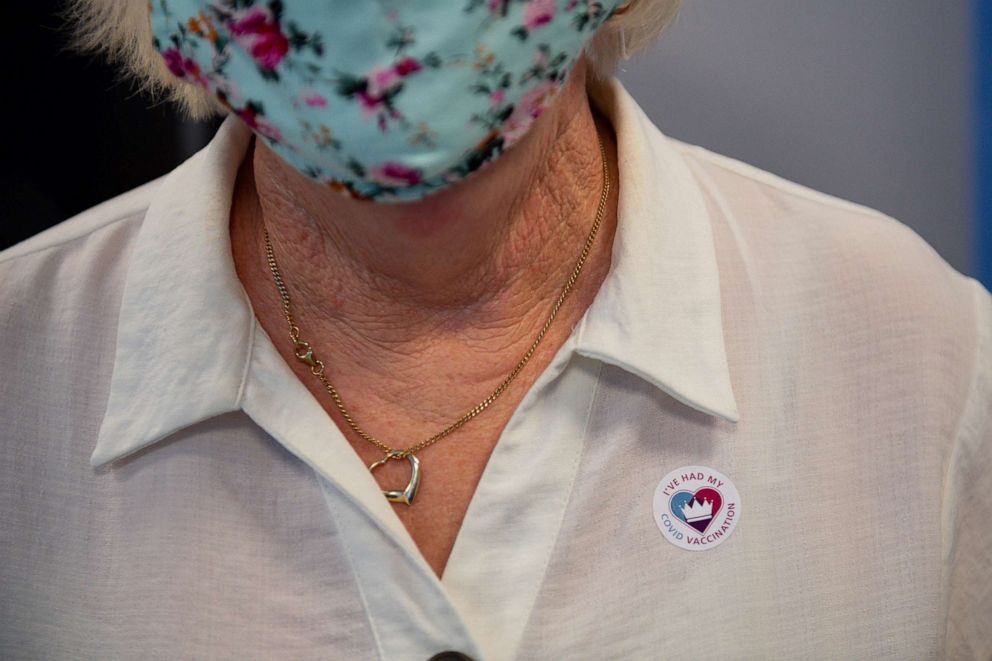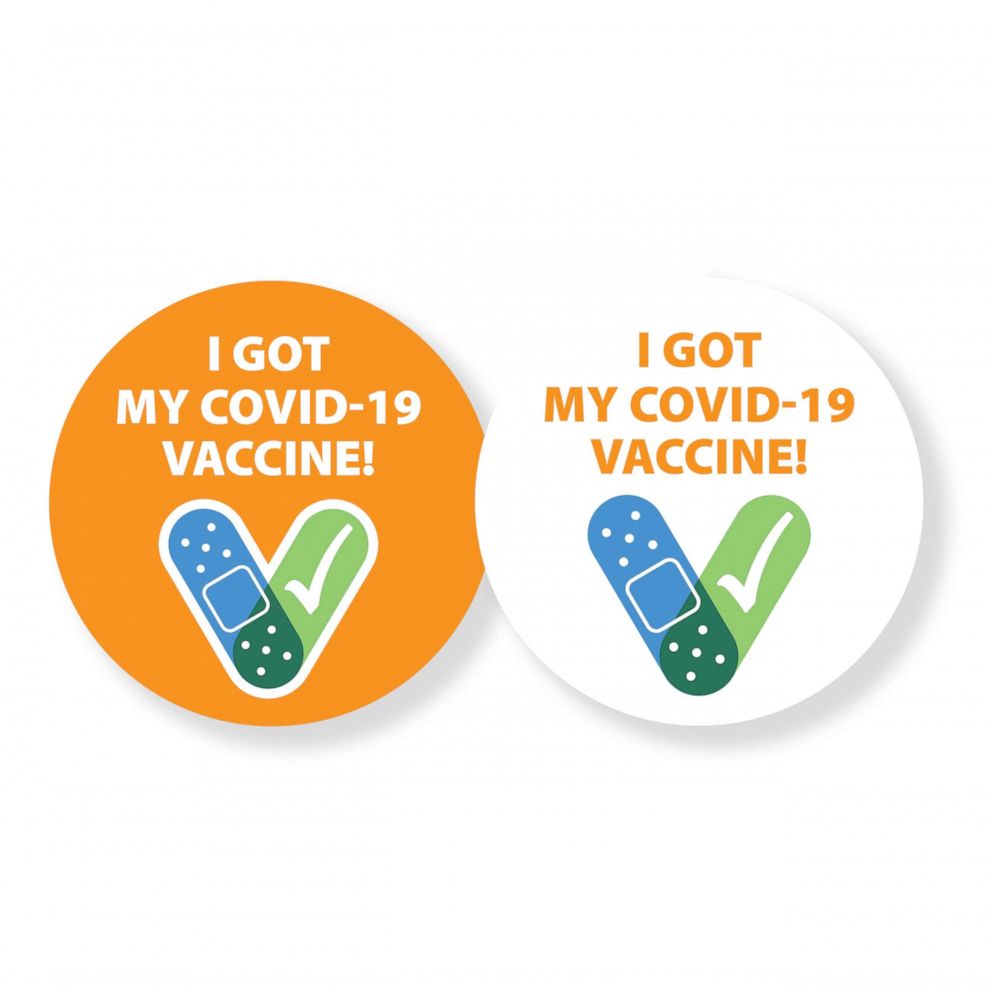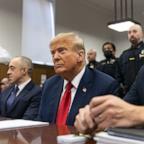Wear a sticker saying you got the COVID-19 vaccine? The CDC thinks it could help
Public health experts want people to publicize their COVID-19 vaccination.
The first health care worker to receive the COVID-19 vaccine in the United States put a sticker that said "Crushing COVID-19, got my vaccine" underneath the words "registered nurse" embroidered on her scrubs.
Sandra Lindsay, a critical care nurse at Northwell Health Hospital in New York, told reporters the vaccine made her feel hopeful. And that sticker created by her hospital could be part of bigger effort pushed by the Centers for Disease Control and Prevention for the first round of Americans who receive the vaccine to play a role in publicizing it.

The CDC wants Americans who receive the COVID-19 vaccine to wear that fact like a badge of honor, even releasing its own design for bright orange and white stickers or buttons that say "I got my COVID-19 vaccine!"
Experts say encouraging people who get the COVID-19 vaccine to acknowledge it with some kind of "swag" could help promote efforts to vaccinate as many Americans as possible or serve as a public reminder for people to get the shot when it's available to them and follow up when they're due for the second dose required for the Pfizer and Moderna vaccines.
More than 8 in 10 Americans say they would take the COVID-19 vaccine and only 15% said they would refuse, according to an ABC News/Ipsos poll released Monday. Public health experts have raised concerns around how to address the number of Americans who could have concerns about taking the vaccine, especially because the vast majority of people will need to be vaccinated before it will have a meaningful impact on reducing the spread of the virus.
"The key reason that would be useful is advertisement. We're very influenced by what we perceive people in our community to be doing so if everybody else is doing something it's attractive to us," Katherine Milkman, a professor at the Wharton School of the University of Pennsylvania and co-director of the Behavior Change for Good Initiative, told ABC News.
Milkman researches human behavior and decisions and argues that educating people on the vaccine and whether it is safe is only half the battle. She said officials will need to go a step further to get people to actually take the time or put aside other concerns to get it, including overcoming hurdles like convenience and ensuring people come back for the second dose at the right time.
The CVS pharmacy chain is considering its own efforts to provide a way for people to tout their vaccination status when it begins to provide the COVID-19 vaccine around the country, though they did not provide specifics about the company's plans.
"We think “I got vaccinated” could be the new “I voted” – at least until the pandemic is over – and we’re exploring the idea as one of many ways to encourage others to get vaccinated," a CVS spokesperson told ABC News.

A small company called Courage Thru COVID is proposing brightly colored wristbands, instead of stickers, as way to acknowledge vaccination and bring people together in the coming months.
"I think it's really awareness around getting vaccinated and getting everybody back to the lives we all loved before. So I think it's pretty simple and it's a way to show support for one another and show that we're all in this together," Adam Wiatrowski, the company's founder, told ABC News.
While wearing a sticker or button may seem simplistic, there is research that shows these kind of reminders can help people on the fence or less likely to go out of their way to do something, even when they say they intend to do it.
Similar to "I Voted" stickers on Election Day or the Band-Aid images around the flu shot, they can serve as a reminder and point of pride to help normalize an action like voting or getting vaccinated if enough people share them publicly.
"Making vaccine uptake “visible” to others, through clinics in prominent public places or by enabling ways for people to signal that they have received the vaccine, either on social media, in news media or in person, can contribute to making the social norm more salient," a group of experts from the World Health Organization wrote in a report published in October.

There's some understandable skepticism that something as seemingly simplistic as a sticker won't address the enormous communication challenges around something like a new vaccine, especially as the pandemic has become so politicized.
But Dan Salmon, an epidemiologist at Johns Hopkins Bloomberg School of Public Health, said he's especially concerned about the enormous challenges facing communications around the vaccine in an environment where the pandemic and protections like masks have become politicized.
Salmon said CDC's plans to suggest a sticker or button are not going to be a game-changer for people who have decided not to get the vaccine or who don't think COVID-19 is that serious of a problem, but it could help provide "little nudges" for people who are on the fence.
"I don't think it's a bad idea. Could it help a little bit? Sure. I guess the question though is where are people walking around wearing a sticker," he said.
But Salmon said more personal concerns about if the vaccine is safe or appropriate for an individual won't likely be addressed by national campaigns. He said health care providers and public health officials need to speak with people and understand their concerns on a personal level, and that media attention around the vaccine needs to focus on acceptance and not give too much focus to people choosing not to get vaccinated.
"When it comes to the specifics of vaccine concerns you're not going to address them effectively with mass media campaigns, and you have to make sure you don't do more harm than good," he told ABC News.
Milkman and some of her colleagues at the University of Pennsylvania have been working on a study with Walmart on strategies to increase the rate of flu vaccinations this year, including what kind of text-based reminders are effective and if strategies like reserved appointments help get people in the door. CDC will also be utilizing text message systems to check in with vaccine recipients and remind them when it's time for the second dose.
Milkman's other proposal, which she writes is "admittedly over the top" is that health organizations use an updated version of the lollipop in the doctor's office with a fleet of ice cream trucks offering sweet treats and vaccines all in one stop.
ABC News' Sasha Pezenik and Christopher Donato contributed to this report.




